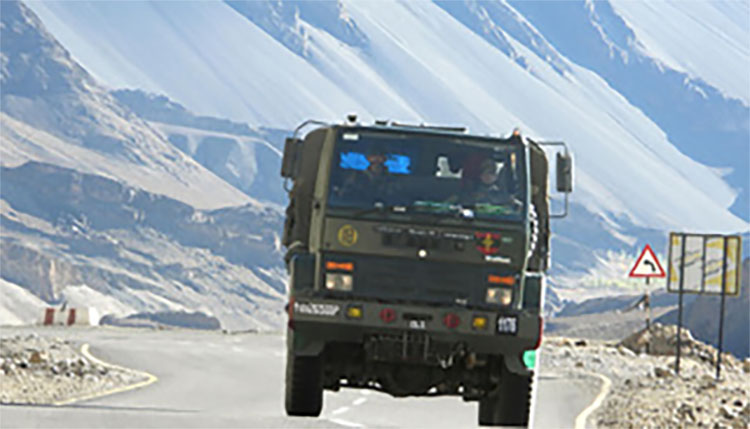India Will Retaliate In Case China Breaches Red Lines, Says Top Official
Sep 10, 2020
NEW DELHI: Warning China that there will be requisite retaliation if any red-lines are now breached in eastern Ladakh, a top government official on Wednesday said India has further reinforced its forward positions to counter fresh Chinese military build-ups and threatening moves in the high-altitude region.
The warning comes after bullets were fired for the first time in 45 years near the Mukhpari Top in the Chushul sector on Monday, and ahead of an expected meeting between foreign minister S Jaishankar and his Chinese counterpart Wang Yi in Moscow on Thursday.
The People’s Liberation Army (PLA) has taken to parading tanks and troops in the south bank of Pangong Tso-Chushul area on a daily basis in a bid to intimidate Indian troops after they occupied multiple tactical heights there in a proactive military manoeuvre on August 29-30.

“The dispute is being directed from the very top of the political-military hierarchy in China, not by the exuberance of local PLA commanders. It can take any trajectory. But if China wants to start a war, it will also have to pay a heavy price,” the official said, pointing out that the events at the LAC were not just an action-reaction sequence.
The PLA might even try to grab heights elsewhere in a tit-for-tat move but the Indian commanders on the ground have been given “full freedom” to respond as they deem appropriate. “Our soldiers on the heights are well-armed and fully-prepared. We have even driven tanks up the ridgeline near Rechin La (Reqin mountain pass),” said the official.
The message has been strongly conveyed to the PLA to not try to breach Indian perimeter defences, which includes barbed wire, established on the heights. “They constitute a red-line. In fact, nowhere are we underprepared now,” he added.
The Indian security establishment’s assessment is that while China may have positioned around 50,000 soldiers along the frontier in eastern Ladakh as well as around 150 fighters, bombers and other aircraft at airbases in Xinjiang and Tibet, the deployments have not yet reached the threshold of a full-blown conflict.
The official said “PLA troop deployments along the Line of Actual Control (LAC) in eastern Ladakh are not tactically geared for war as of now. But yes, the pinpricks will continue”.
India has sought another meeting of the rival corps commanders, who have met five times earlier, to defuse the tensions in the Pangong Tso-Chushul area. But the Indian Army, which has matched the Chinese forcelevels, are now also prepared for all contingencies after initially being surprised by the PLA move to occupy the 8-km stretch from ‘Finger-4 to 8’ (mountainous spurs) on the north bank of Pangong Tso in early-May.
The PLA was paid back in its own coin when Indian soldiers seized heights on the ridge line stretching from the southern bank of Pangong Tso at Thakung to Gurung Hill, Spanggur Gap, Magar Hill, Mukhpari, Rezang La and Reqin La on August 29-30.
As earlier reported by TOI, Indian soldiers also simultaneously occupied heights overlooking the PLA deployments on the ridgeline over `Finger-4’ on the north bank of Pangong Tso. “We have applied counterpressure points now,” he said.
In the `Finger-4’ area, PLA troops will now have to deploy to an altitude of over 17,000-feet if they want to gain a tactical advantage over the Indian soldiers there. “The distance between the rival troops on the heights is just 100-200 meters, while it is around 2-km at the level of the lake,” said the official.
On the southern bank of Pangong Tso, the PLA holds the Helmet Top, Yellow Bump and Black Top features along the LAC. The PLA, in fact, has installed cameras on the heights to monitor the activities of the Indian soldiers in the region. “But we are also watching them closely. From the heights we occupy, the PLA’s Moldo garrison is clearly visible,” said another officer.
Courtesy: Opera News/TOI

